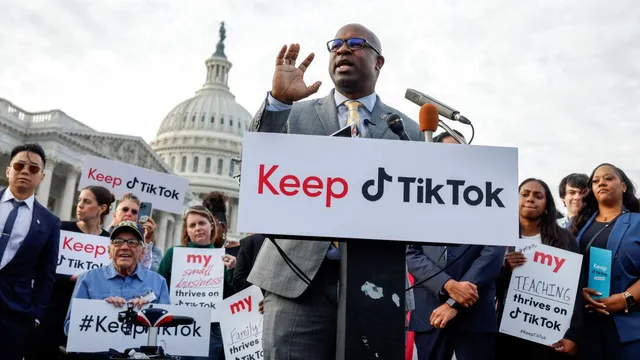- By Supratik Das
- Sat, 23 Aug 2025 10:56 AM (IST)
- Source:JND
TikTok news: TikTok, owned by Chinese tech giant ByteDance, remains banned in many nations despite being among the World's most utilised social media platforms. As of 2025, at least 23 countries, including India, Nepal, Somalia, Afghanistan, and even China itself, have imposed either complete or partial bans on the platform, citing concerns ranging from national security to social harmony
The new controversy of TikTok once again popped up after the platform's website went live for some users in India, causing widespread rumors of a return. But the app still isn't available on the Google Play Store and App Store. While there have been some reports of accessing the website by some users, others on X claim it is still blocked. But amid speculations, the government clarified on Friday that the ban on TikTok remains in place, dismissing reports that suggested otherwise. "Government of India has not issued any unblocking order for TikTok. Any such statement or news is false and misleading," ANI reported, citing government sources.
Why Countries Are Banning TikTok?
The main cause for the repeated bans of TikTok is data protection and privacy issues. The governments argue that the parent firm of the app, ByteDance, might be forced by Chinese law to provide private user data to Beijing. Indian authorities, which banned the app in June 2020 following border skirmishes with China, had stated that the app directly threatened the "sovereignty and integrity" of the nation. The Ministry of Electronics and IT had marked Chinese apps as being "prejudicial to defence and public order," alleging them to be picking up location information, device data, and other sensitive user information. Meanwhile, Afghanistan's Taliban government had previously banned TikTok to block what it referred to as the "misleading" content among its youth. Meanwhile, in Western nations including the United States, Canada, Australia, France, Belgium, and the European Union, the restrictions are largely focused on limiting TikTok’s use on government devices, following warnings from cybersecurity agencies that the platform could act as a backdoor for surveillance.
In the US, TikTok has been at the center of intense political controversy. The Supreme Court affirmed a national ban on TikTok under federal law, although the enforcement has been suspended as ByteDance negotiates with American entities for the possibility of a takeover. President Trump, who has publicly acknowledged that he enjoys the app's appeal among young voters, has repeatedly extended the company's time, stating that he prefers an American buyer to assume control rather than allow the platform to disappear.
TikTok Not Available In China?
Though ByteDance is a Chinese company, TikTok itself is not available in mainland China. Instead, the government allows access only to its domestic version called Douyin, which is strictly monitored and censored under Beijing’s internet laws. Douyin, the local version of TikTok, is similar but not the same. While both are owned by the same company, Douyin is only accessible to users in China and operates under very different rules. Content that appears on Douyin must comply with various censorship regulations set by the government. This has led to criticism that while China restricts the regulations of the global version of the app within its borders, it continues to export it globally.
ALSO READ: Is TikTok Making A Comeback To India? Here's What You Need To Know
Complete List Of Countries Where TikTok Is Restricted
Based on an updated count, TikTok is banned in these countries either fully or partially:
• India
• Nepal
• Bangladesh
• United States
• United Kingdom
• Somalia
• Ireland
• Australia
• France
• Estonia
• Belgium
• Norway
• Denmark
• Latvia
• Afghanistan
• New Zealand
• Netherlands
• Taiwan
• Armenia
• Azerbaijan
• Indonesia
ALSO READ: From TikTok Trends To Bumble Matches: Shocking Truth Behind Why Gen Z Women Are Dating Older Men
The TikTok ban saga highlights the larger geopolitical battle over technology, data and influence. While the app remains a livelihood for millions of creators worldwide, governments remain wary of its ownership structure and its potential to compromise national security. For the time being, TikTok persists in markets where it still operates, but whether it can regain lost markets such as India and the US will be what will decide if the platform maintains its worldwide influence in the future.

